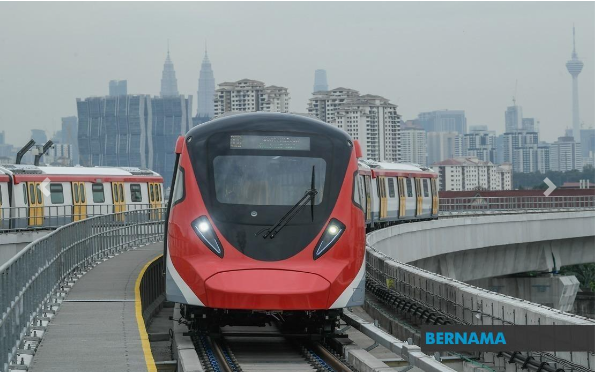
|
Getting your Trinity Audio player ready...
|
Malaysia’s transportation sector is poised for a transformative era, aligning with the government’s strategic vision to establish a modern and interconnected transport infrastructure system infused with cutting-edge technology.
In pursuit of this vision, there is a critical need for enhanced transport integration, particularly as Malaysia undertakes ambitious projects like the Mass Rapid Transit (MRT), the East Coast Rail Link (ECRL), and the planning for the Kuala Lumpur-Singapore High-Speed Rail (HSR).

Associate Professor Rohafiz Sabar, a senior lecturer at the Department of Transport and Logistics, School of Technology and Logistics Management at Universiti Utara Malaysia, expressed optimism, stating, “The government’s clear goal is to cultivate a seamless transit system that connects cities, regions, and various modes of transportation, providing Malaysians and visitors with convenient and sustainable travel options throughout the country.”
In the Budget 2024 allocation, the Madani Government, led by Prime Minister Datuk Seri Anwar Ibrahim, has earmarked RM4.7 billion for the enhancement of the LRT3 project (LRT Shah Alam Line) and its supporting infrastructure.
Rohafiz emphasised the government’s commitment to creating a user-friendly, borderless transit system, further noting, “The technology will not only improve passenger experience but also provide valuable data to optimise transport routes and services.”
The allocation also covers significant projects like the MRT Line 3, an RM50.2 billion venture covering 51 kilometres with 31 stations, and the RM74.96 billion ECRL, connecting Kota Bharu and Port Klang. While the Kuala Lumpur-Singapore HSR project was temporarily suspended in 2018, it holds strategic importance for cross-border connectivity.
Rohafiz stressed the pivotal role of advanced technology, including smart ticketing systems, real-time information applications, and digital payment options, in optimizing efficiency. She highlighted the transformative impact of technology on residents in the Klang Valley, citing examples of cashless formats and future plans to expand the MRT network.
In terms of transport expenditure, Malaysia has allocated RM17.6 billion for infrastructure projects, aiming to enhance roads, airports, and ports by 2023. This significant financial commitment underscores the government’s dedication, with transport expenditure accounting for about 4.5% of total expenditure.
Rohafiz concluded by emphasising that the successful implementation of these mega projects will result in a more efficient, connected, and user-friendly transportation system, setting the stage for a technologically advanced future for Malaysia.
In tandem with Malaysia’s ambitious transportation projects, such as the Mass Rapid Transit (MRT) and East Coast Rail Link (ECRL), the Malaysian government has taken a significant step towards digital adaptation by introducing online renewal options for driving licenses and motor vehicle road tax through the MyJPJ application from 1 February 2024.
This move is a crucial leap towards enhancing user convenience and fostering digital adaptation in the country. The implementation will be carried out in phases, with the initial phase concentrating on private Malaysian vehicles.
The Federation of Malaysian Consumers Associations (FOMCA) CEO commended the government’s efforts, applauding the introduction of online renewal as a swift and efficient means for users to renew their driving licenses.
However, he raised concerns about potential challenges faced by vulnerable groups, particularly older individuals, who may find the online renewal process intimidating. To address this, he suggested that the Road Transport Department (JPJ) consider providing special training or video tutorials to assist such groups in navigating the MyJPJ application for license renewal.
Stressing the importance of cutting-edge technology, the CEO stressed the need for a seamless renewal process and recommended that JPJ and the government invest in robust servers to prevent system glitches and ensure compatibility during the renewal process. He advocated for maintaining up-to-date systems aligned with international standards to enhance the overall efficiency of the online renewal system.
















